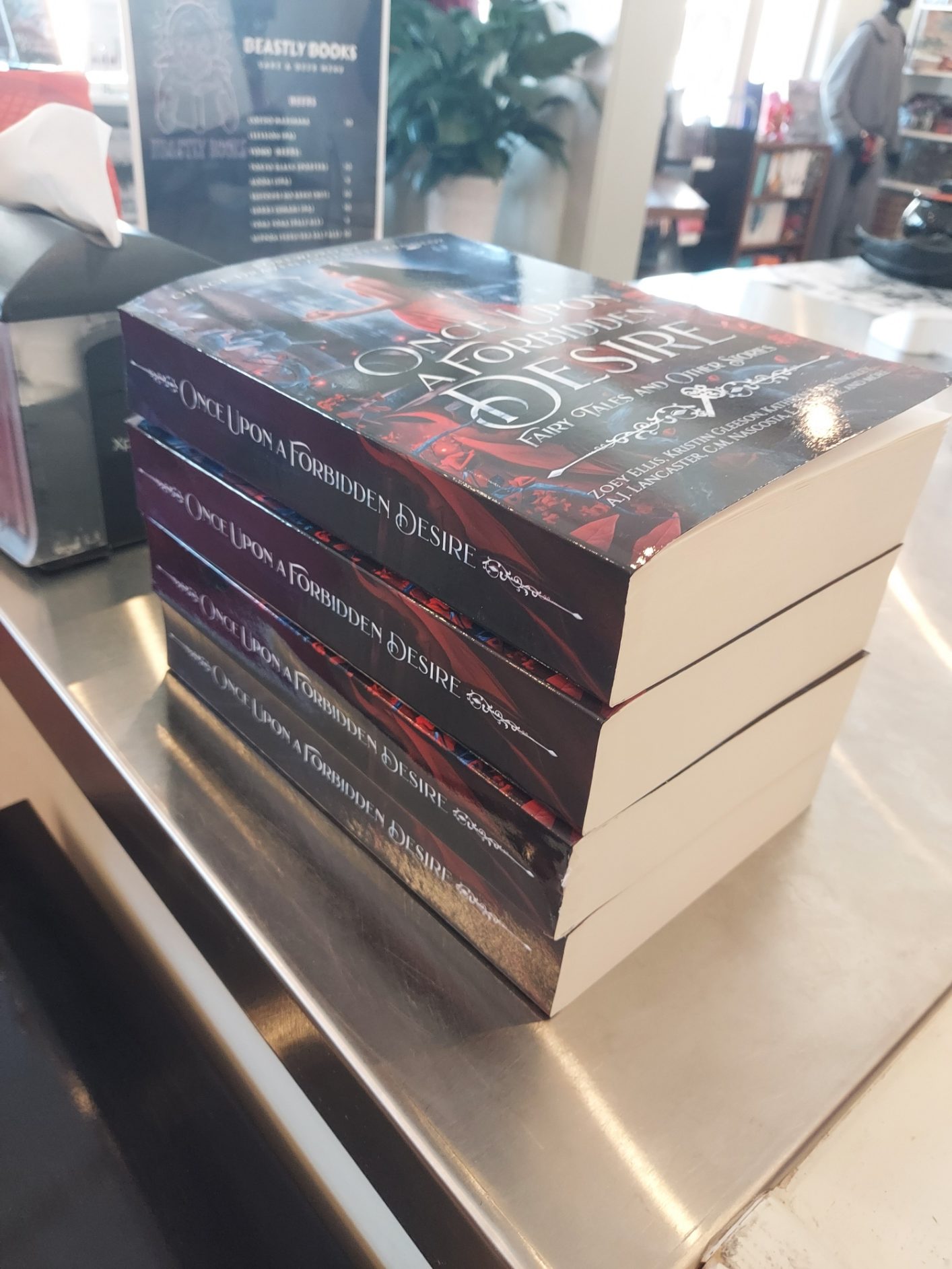My VOW for Girls project – a special treat for you all. About the new book in my favorite series and how I miss the edge it once had. Also: endorsement quotes (or blurbs) – do they work? Does anyone care? I say YES.

RITA ® Award-Winning Author of Fantasy Romance

My VOW for Girls project – a special treat for you all. About the new book in my favorite series and how I miss the edge it once had. Also: endorsement quotes (or blurbs) – do they work? Does anyone care? I say YES.


A round-up of my weekend, including a fun event with the fabulous Melinda Snodgrass. Also thoughts on including twists in stories and what’s required to earn them.






 The other day I saw yet another article on how we read differently on paper versus electronically. Inevitably it was posted by a writer friend who rather smugly added the comment that she has gone back to reading on paper. That’s the part of all of this that bugs me, that these articles and “research studies” seem to be always accompanied by the attitude that reading on paper is virtuous and reading electronically is Bad and Wrong.
The other day I saw yet another article on how we read differently on paper versus electronically. Inevitably it was posted by a writer friend who rather smugly added the comment that she has gone back to reading on paper. That’s the part of all of this that bugs me, that these articles and “research studies” seem to be always accompanied by the attitude that reading on paper is virtuous and reading electronically is Bad and Wrong.
Now, I obviously have a horse in this race because 12 of my 14 released books are available in digital form only, and all are available in digital as well as on paper. More than that, I am a digital reader. I love love love how being able to have an ereader has changed my life. From the instant availability of the books I want to read to the desperately needed reduction in bookshelf space, ereading has been a major blessing for me.
There. I’m biased,
So are these articles, only they don’t admit to it. Worse, they make irritating leaps of logic. Most of you know I come from a science background, so I tend to read for how well a study is constructed. A well-constructed experiment controls for variables. If we’re going to make statements like this from that article:
Neuroscience, in fact, has revealed that humans use different parts of the brain when reading from a piece of paper or from a screen.
You have to define the terms. I won’t get started on the irresponsible use of the umbrella term “Neuroscience,” as if that’s not a field that comprises thousands of disciplines. We might as well say “Science has revealed!” Oops, guess I did get started on that. The real transgression in that sentence – indeed through that entire article – is that the terms “reading” and “screen” are never defined. Reading what on what kind of screen? It matters, particularly if we’re comparing it to reading what they DO specify as “deep reading” – the concentrated kind we do when we want to “immerse ourselves in a novel or read a mortgage document.
Okay, so if we want to really evaluate what parts of the brain we use while reading on a screen vs. paper, then we have to control for EVERYTHING except the one difference: digital vs. paper. But they don’t do this and it makes me crazy!!! Instead they say things like:
And that uses the kind of long-established linear reading you don’t typically do on a computer. “Dense text that we really want to understand requires deep reading, and on the internet we don’t do that.”
The internet??? I’m reading a mortgage document or novel on the INTERNET??? No no no. I read a novel on my Kindle, which is linear. I read the mortgage document in Adobe Reader, because they sent it to me as a pdf. This thing:
So the more you read on screens, the more your mind shifts towards “non-linear” reading — a practice that involves things like skimming a screen or having your eyes dart around a web page.
Is about reading web pages or Twitter or Facebook or blog posts, not novels or other important documents. They’re conflating and it annoys me profoundly because it’s creating this brand of urban myth where all these people nod and agree, saying oh yes, science tells us that reading on paper is better when it’s told us no such thing.
Amusingly, I see that an addendum was added to that article yesterday saying people had asked for research citations. So it’s not just me, which is comforting.
I recently conducted my own, very subjective, absolutely not controlled, pretty much accidental experiment on this. I reread all of J.D. Robb’s In Death books. That’s 40 novels and eight novellas. The first one came out in mass-market paperback in 1995. I started reading them around 1998 or 1999, which means I bought those paperbacks. And have them still. In 2004, the publisher moved the series into hardback and, loyal fan as I was and still am, I went with them. I have twelve of those books in hardback. After that? In 2009 I got my first ereader. I read the series digitally ever since.
So, it was interesting, reading from the beginning, consecutively and without pause, from mass-market paperback to hardback to digital, following the same characters and storyline. It’s not perfectly controlled, but it comes closer than most of my reading. Did I notice a difference?
Nope.
The hardbacks are more annoying to hold, particularly in the bathtub. I didn’t give myself any quizzes on reading comprehension, but I subjectively felt like I absorbed the stories in the same way, regardless of medium. I felt the same delicious sensation of what “deep reading” means to me – immersing myself in the voice and characters so that I lose track of time and my immediate reality.
We’re in the midst of change and a lot of people don’t like change. I get that. However, I think it’s foolish to persist in this insistence that there’s a right and wrong way to read. Any more than there are right and wrong books to read.
Spare me.
 I notice a lot of my photos of Jackson, the New Kitten, are not crisply in focus. This is because he’s moving. All the time. And he’s fast, too.
I notice a lot of my photos of Jackson, the New Kitten, are not crisply in focus. This is because he’s moving. All the time. And he’s fast, too.
I’m over at Word Whores today, talking about which literary character I wish I’d created and why.